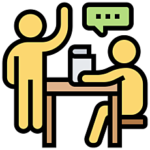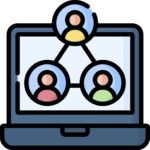An overview of the role:
Relevant for early years lead practitioners who are looking to develop further their knowledge, understanding and skill in being an influential practitioner, working directly with children, skilfully leading day to day practice at an operational level.
As active practitioners they are effective role models of play based learning, supporting others to develop their own practice. They are highly skilled professionals who take an operational lead for the care, learning and development of all young children within their care, adapting to individual needs providing inclusive and holistic provision. They engage with sector developments both locally and nationally, with a commitment to developing their own professional and educational competencies.
In their daily work, an employee in this occupation interacts with children aged birth to eight years, families, practitioners, other professionals and appropriate agencies. An employee in this occupation will be responsible for supporting the quality of learning and development in their setting. They lead on the operational aspects of this provision and are typically responsible for leading other practitioners.
Typical Job titles:
● Room leader, Deputy manager, Assistant manager, Senior practitioner, Lead practitioner, Pre-school leader, Early years coordinator.
● Early years practitioner, Nursery officer, Early years officer, Key worker, Senior key worker, Baby room leader, Lead baby room
practitioner, Play leader
● Early years support worker, Higher level teaching and learning assistant, Early years foundation Stage lead or coordinator
● Pastoral care manager, Pastoral assistant, Education welfare officer
● Specialist practitioner in child development (health), Community nursery nurse, Health play specialist, Hospital play worker.






